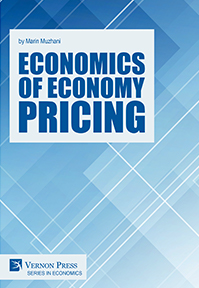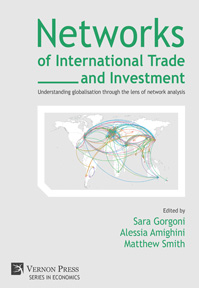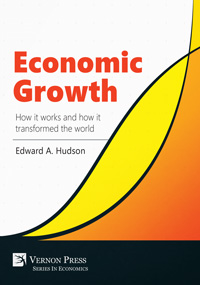Search
Browse
by Publication status
by Subject
Anthropology (29) Art (128) Business and Finance (27) Cognitive Science and Psychology (55) Communication and Journalism (49) Economics (63) Education (71) History (151) Human Geography (21) Interdisciplinary (45) Language and Linguistics (140) Law (16) Music Studies (19) Philosophy (163) Political Science and International Relations (105) Sociology (327) Statistics and Quantitative Methods (21)by Series
Series in Literary Studies (72) Series in Philosophy (59) Series in Education (56) Series in Sociology (46) Bridging Languages and Scholarship (35) Series in Politics (33) Series in World History (32) Series in Language and Linguistics (25) Series in Philosophy of Religion (22) Cognitive Science and Psychology (21) Series in American History (20) Critical Perspectives on Social Science (19) Series in Art (19) Series in Cinema and Culture (16) Series in Critical Media Studies (16) Curating and Interpreting Culture (15) Series in Anthropology (14) Series on the History of Art (14) Economics (14) Series in Business and Finance (13) Series in Music (12) Series in Communication (10) Series in Performing Arts (9) Series on Climate Change and Society (9) Philosophy of Personalism (8) Series in Law (8) Series in Economic Methodology (7) Women's Studies (7) Classics in Economics (6) Series in Built Environment (6) Series in Economic Development (6) Philosophy of Forgiveness (5) Series in Economic History (5) Series in Philosophy of Science (5) Series in Social Equality and Justice (5) Series on the History of Science (4) Serie En Estudios Literarios (3) Serie en Sociología (3) Series in Contemporary History (3) Series in Creative Writing Studies (3) Series in Design (3) The Interdisciplinary Built Environment (3) Serie en Comunicación y Medios (2) Serie en Historia (2) Serie en Música (2) Serie sobre Cambio Climático y Sociedad (2) Series in Heritage Studies (2) Series in Innovation Studies (2) Series in Philosophy of Race (2) Serie en Ciencias Políticas (1) Serie en cine y cultura (1) Serie en Entorno Construido (1) Serie en Estudios Culturales (1) Serie en Filosofía (1) Serie en Filosofía de la Ciencia (1) Series in Classical Studies (1) Series in Economics of Technological Change (1) Series in Urban Studies (1)by Language
English Spanishby Author
Browsing with filters
Vernon Series in Economics
Central Banking and Monetary Policy in the G20: Paradigms and Challenges
Edited by
Irfan Kalayci, İnönü University, Malatya, Turkey
Availability: In stock
498pp. ¦ $135 £104 €124
Behind productive and prosperous economies are independent central banks that implement effective monetary policies. This observation is especially valid for the G20, which comprises the world’s top twenty economies in terms of gross domestic product and the largest stakeholders of the global economic system. These economies include Argentina, Australia, Brazil, Canada, China, France, Germany, India, Indonesia, Italy, Japan, Mexico, Russia, Saudi Arabia, South Africa, South Korea, Turkey, the United Kingdom, the United States, and the European Union. Three features of this book, which focuses on central banking and monetary policy in the G20, an intergovernmental platform, stand out: Firstly, as contemporary theories and global practices confirm, the main purpose of central banks is to ensure monetary and price stability, not despite the government but in cooperation with it. This principle is strongly emphasized here. Governments, which must maintain fiscal discipline, are key to the success of central banks in combating inflation and deflation. Secondly, since the authors of the book chapters come from various countries and academic institutions, the book offers a range of perspectives and intellectual richness. Without deviating from the book's main axis, the authors examine the changing paradigms in central banking and the increasing challenges of monetary policy. This examination is based on developed and emerging economies, integrations, financial organizations, and economic crises within the G20, informed by significant sources. Thirdly, this book offers university researchers, professional business practitioners, and curious readers the opportunity to explore and reflect on new concepts such as green central banking, digital money, and interest-free monetary policies, which have gained prominence in the wake of the global COVID-19 pandemic, alongside mainstream topics. It is hoped that this book, consisting of 14 chapters, will inspire those who wish to conduct new and renewed academic studies on global central banks and monetary policies and will fill a gap in the literature.
Economics of Economy Pricing
Marin Muzhani, CDI College, Canada
Availability: In stock
279pp. ¦ $77 £62 €70
The economy of the industrialized countries in the 21st century has already moved to a new level of mass production and technology never seen before, thanks in part to globalization, advanced technologies, new organization management methods, and innovative supply chain. A relatively large number of mass-produced commodities (characterized as non-premium) and services in Western economies are somehow sold at discounts rather than regular prices at a much higher frequency that was never seen before. This phenomenon has completely changed how we look at the theory of the firm in microeconomics. This book is indented to introduce new ideas and theories by challenging the current modern micro-and-macro economic theories. In a globalized world, the economies of advanced countries have entered a new phase called “economy pricing,” where most of the mass commodities are sold at a low price during certain periods of the year, called ‘sales events’. In addition to low prices, most industrialized countries have had record low inflation, low-interest rates, low growth, and low unemployment rates. This book will contend how the “Economy Pricing System” is about to revolutionize how people look at a real economy’s micro and macro effects.
Reimagining Capitalism: Applying Negative Dialectics for a Better Future
David M. Atkinson, York St John University
Availability: In stock
455pp. ¦ $82 £65 €77
The Covid-19 pandemic reinforced the perception that capitalism is in crisis, that the future is volatile, uncertain, complex and ambiguous, and that, increasingly, our thinking about it and ability to manage and organize ourselves within it, are challenges we are ill-equipped for. Despite the efforts of many writers, and a surfeit of manuscripts concerning the need to rethink capitalism, questions concerning the struggle for social and economic justice remain unanswered. While some suggest that with corrective action, businesses can save the world, there is an acceptance that they cannot do so alone. However, while governments might strengthen their institutions, enacting more effective policies, the challenge is simply laid bare at the feet of industry and commerce. Is the challenge to confront the establishment just too big to face? Government institutions and the barons of industry and commerce are but interrelated, interconnected, interplaying components in one socio-economic system. This book offers readers a progressive, radical and academic provocation of that system; it also proposes a field of Applied Negative Dialectics. In 'Reimagining Capitalism', Atkinson confronts the need to rethink capitalism and presents an integrated range of thinking through a lens of applied negative dialectics, questioning how and why things might have occurred, and where and how we might begin to improve them.
Liberty & Prosperity: Liberal economics for achieving universal prosperity
February 2021 / ISBN: 978-1-64889-198-4Availability: In stock
158pp. ¦ $36 £27 €30
‘Liberty & Prosperity: Liberal Economics for Achieving Universal Prosperity’ aims to illuminate alternative policy framework using liberal economic policies. The evolution of this book is grounded in the author’s personal and professional experience investigating economies around the world and therefore takes a global view. The ideas discussed are intended for countries currently under different stages of development and are not restricted to only developed countries or emerging economies. This book examines what we as a society can do to achieve universal prosperity with the recurring topic of the intertwining nature of liberty and prosperity; without prosperity, man cannot have true liberty, and the best way to achieve universal prosperity is by providing liberty to all. It identifies the appropriate measures from existing liberal theories that could help achieve this long-term goal, while also introducing contrarian ideas, including the elimination of income tax, denationalization of money, and the reduction in the role of central banks. The central theme is that liberty in all aspects of economic activity, coupled with universal basic income, could create universal prosperity. This book will particularly appeal to those with a general interest in the economy and business, as well as students who seek an overview of classical macroeconomic principles; however, the book’s innovative ideas may also be of interest to professional economists.
Macroeconometric Models for Portfolio Management
Jeremy Kwok, University of Exeter, England
Availability: In stock
242pp. ¦ $45 £34 €38
‘Macroeconometric Models for Portfolio Management’ begins by outlining a portfolio management framework into which macroeconometric models and backtesting investment strategies are integrated. It is followed by a discussion on the theoretical backgrounds of both small and global large macroeconometric models, including data selection, estimation, and applications. Other practical concerns essential to managing a portfolio with decisions driven by macro models are also covered: model validation, forecast combination, and evaluation. The author then focuses on applying these models and their results on managing the portfolio, including making trading rules and asset allocation across different assets and risk management. The book finishes by showing portfolio examples where different investment strategies are used and illustrate how the framework can be applied from the beginning of collecting data, model estimation, and generating forecasts to how to manage portfolios accordingly. This book aims to bridge the gap between academia and practising professionals. Readers will attain a rigorous understanding of the theory and how to apply these models to their portfolios. Therefore, ‘Macroeconometric Models for Portfolio Management’ will be of interest to academics and scholars working in macroeconomics and finance; to industry professionals working in financial economics and asset management; to asset managers and investors who prefer systematic investing over discretionary investing; and to investors who have a strong interest in macroeconomic influences on their portfolio.
Law and Economics: Market, Non-market and Network Transactions
Edited by
Panta Murali Prasad, Indian Institute of Technology Kanpur, India
and Ranita Nagar, Gujarat National Law University, Gandhinagar , India
Availability: In stock
232pp. ¦ $57 £47 €50
It is well known that sustainable development practices, technological innovation and good governance play a major role in the accumulation of wealth in a knowledge economy. Hence, the state promotes competition, provides incentives to conserve resources and creates opportunities for citizens to push for innovation and invention. As a result, the formulation of efficient legal rules is essential for protecting intellectual property rights, fully specified contracts and effective ex-ante and ex-post systems. However, can efficient legal rules improve societal well-being by changing the behaviour of individuals and basic social structures and trends? And if so, how can these legal rules be formulated? In their Second International Conference on Law and Economics, the Indian Institute of Technology Kanpur aimed to address the formulation and implementation of efficient legal rules while at the same time working towards a greater dissemination of law and economics-based research. This book is the final outcome of this conference that saw over thirty presentations take place. The twelve carefully selected contributions to this volume cover a broad range of topics within law and economics from engaging with decisions makers to create a process for the routine collection of empirical evidence to perceived gender discrimination and stress among working professionals. This book is not only an important contribution to law and economics scholarship but will also be of great interest to both universities and research institutions working within the field.
Networks of International Trade and Investment
Understanding globalisation through the lens of network analysis
Edited by
Sara Gorgoni, University of Greenwich et al.
Availability: In stock
344pp. ¦ $68 £48 €55
In recent decades, the international economy has witnessed fundamental changes in the way manufacturing is organised: products are no longer manufactured in their entirety in a single location. Instead, the production process is often split across a number of stages located in countries that are frequently far apart from each other. By spreading out their manufacturing and supply chain activities globally through international investment and intra-firm trade, Multinational enterprises (MNEs) play a focal role in this reorganisation of production. Our ability to understand the global economy, therefore, requires an understanding of the interdependencies between the entities involved in such fragmented production. Traditional methods and statistical approaches are insufficient to address this challenge. Instead, an approach is required that allows us to account for these interdependencies. The most promising approach so far is network analysis. ‘Networks of International Trade and Investment’ makes a case for the use of network analysis alongside existing techniques in order to investigate pressing issues in international business and economics. The authors put forward a range of well-informed studies that examine compelling topics such as the role of emerging economies in global trade and the evolution of world trade patterns. They look at how network analysis, as both an approach and a methodology, can explain international business and economics phenomena, in particular, in relation to international trade and investment. Providing a comprehensive but accessible explanation of the applications of network analysis and some of the most recent methodological advances in its field, this edited volume is an important contribution to research in international trade and investment.
Fixed or Flexible Exchange Rates? History and Perspectives
Marin Muzhani, CDI College, Canada
Availability: In stock
386pp. ¦ $65 £52 €60
The economy of the industrialized countries in the 21st century has already moved to a new level of mass production and technology never seen before, thanks in part to globalization, advanced technologies, new organization management methods, and innovative supply chain. A relatively large number of mass-produced commodities (characterized as non-premium) and services in Western economies are somehow sold at discounts rather than regular prices at a much higher frequency that was never seen before. This phenomenon has completely changed how we look at the theory of the firm in microeconomics. This book is indented to introduce new ideas and theories by challenging the current modern micro-and-macro economic theories. In a globalized world, the economies of advanced countries have entered a new phase called “economy pricing,” where most of the mass commodities are sold at a low price during certain periods of the year, called ‘sales events’. In addition to low prices, most industrialized countries have had record low inflation, low-interest rates, low growth, and low unemployment rates. This book will contend how the “Economy Pricing System” is about to revolutionize how people look at a real economy’s micro and macro effects.
Imperative of Economic Growth in the Eurozone: Competitiveness, Capital Flows and Structural Reforms
Edited by
Antonin Rusek, Susquehanna University
and Lubor Lacina, Mendel University, Czech Republic
Availability: In stock
268pp. ¦ $62 £51 €58
European economic recovery appears to be taking hold. So is the European crisis over? The acute phase of the crisis passed, however a number of medium and long term issues remain. The policies of “internal devaluations” are working, albeit slowly, to restore competitiveness in the countries most affected by the crisis. However, growth remains at best sluggish. The medium and long term outlook remains highly uncertain, fomenting social tensions and endangering political stability. The restoration of economic dynamism is increasingly perceived as the answer to the question of the “European” future – economically, politically and socially. There is a broad consensus that dynamic structural reforms and the restoration of competitiveness at the level of the global economy are key answers to current European challenges. However, whatever the form these may take, the transfer of resources is implicit (and seemingly necessary), to underpin the current structure of eurozone. This indeed raises the question of governance – both fiscal and monetary. After all, the provision of resources implies an allocation – and it is hard to imagine that resources will be provided to the common pool unless the providers have some say with respect to allocation. And that requires some form of common (i.e. centralized) decision-making procedures, in all likelihood exceeding the common understanding of the acquis communautaire as it exists today – i.e. some form of the effective political arrangement. In this context, the basic idea which connects all contributions in this volume is the analysis of the problems which affected the Eurozone in the past decade and the challenges and dilemmas the Eurozone will face in the coming years.
Global Economy in Transition: the European Union and Beyond
Edited by
Linda Winkler, Wilkes University
and Harold Codrington, Central Bank of Barbados
Availability: In stock
260pp. ¦ $75 £68 €73
This volume covers various issues in global development and global economic transformation including factors affecting economies and development in the European Union (EU), the Ukraine, select countries in Africa, the Caribbean, the South Pacific as well as India and the United States. The global economy is in transition, from the 1990s' status quo to the “new normal” with heavy reliance on the internet, rapid communications, sophisticated payment systems, diminishing importance of size and distance and changing notions of the market. This volume discusses how this process is affecting economies across the globe and why an appreciation of it will help efforts by governmental bodies and the private sector to reassess societal relationships - both economic and political. This volume shows that challenges to policy-making and the achievement of social consensus on development issues are often quite similar in all countries, irrespective of size, geographical location, endowment and developmental status. The chapters speak to concerns that touch on a cross-section of issues which are driving transition and transformation at multiple levels. As a group, they compare economic factors across transnational economic or political associations (OECD, European Union, G20) or make comparisons across or within emerging markets or small states (BRICS, various African countries, the Caribbean, South Pacific). They include the presentation of a new model for transnational agreements, discussions of policies related to labor compensation and corporate governance, comparisons of nations across the world using indices of economic development and governance, an analysis of gender inequality in employment in the European Union, comparisons of tax burdens across the European Union and the USA, discussions of employee representation in corporate governance, and a look at grass-roots development and markets in developing economies. As a whole, in its breadth and cross-national perspective, the volume represents an important scholarly contribution to international economics.
Global Responsible Intergenerational Leadership
A conceptual framework and implementation guidance for intergenerational fairness
Julia M. Puaschunder, The New School
Availability: In stock
154pp. ¦ $65 £54 €61
Today's grand policy dilemmas, from climate change, to over-indebtedness, to demographic shifts, have momentous long-term implications. Future generations will be constrained by our present decisions to an extent that is without precedent in advanced capitalist democracies. This book is an extensively researched and reasoned appeal in favor of intergenerational fairness - the ability to provide to future generations an at least as favorable standard of living as that enjoyed today. Intergenerational equity is an essential consideration in finding lasting solutions to the multifaceted crises of our time. As an implicit contract and transfer between living and future generations, intergenerational equity avoids discriminating against future generations. The book aims to theoretically define intergenerational equity and to frame it as a natural behavioral law, capturing human ethicality bounds. It follows a long and distinguished tradition of scholarly discourse in turning to natural law for solutions to major social predicaments. Outlining some of the causes of the current intergenerational imbalances regarding climate change and over-indebtedness it sets the basis for understanding their drivers and implications. A central proposition is that the natural human drive towards intergenerational fairness can be the basis for the necessary behavioral responses: the human-imbued moral compass of natural law can be a useful complement, if not alternative, to public policy. This book fills an important gap. Despite a resurgence of literature, the economic and social dimensions of intergenerational equity remain underexplored. Existing literature misses a holistic ethical framework of decision-making failures that addresses intergenerational concerns. Whilst evolutionary grounded, intergenerational fairness has not been recognized as a natural behavioral law – a human-imbued drive being bound by human fallibility. Practical implications and recommendations in advancing an agenda for the advancement of intergenerational equity are provided. Attention is drawn to the problem of providing the required leadership to promote the idea of intergenerational equity as a guiding principle in corporate, social and policy action. This book contributes both theoretical and practical insights and will be of interest to economists, sociologists, public policy makers and corporate executives tasked with tackling the most pressing contemporary challenges of mankind.
Agricultural Sector Issues in the European Periphery
Productivity, Export and Development Challenges
Edited by
Persefoni Polychronidou, Central Macedonia Institute of Technology, Greece
and Anastasios Karasavvoglou, Eastern Macedonia and Thrace Institute of Technology, Greece
Availability: In stock
132pp. ¦ $40 £35 €38
Over the course of the past two decades peripheral European economies in the Balkans and in Eastern Europe have experienced significant structural changes and have adapted to the global economic environment. Agriculture and the processing, using and trading of agricultural products play an important role in their economies. This volume covers several issues facing the contemporary agricultural sector in these countries, such as the framework of the Common Agricultural Policy of the European Union, the identification of an opinion leader portrait in agriculture, the characteristics of using Information and Communication Technologies as tools in the partnerships and internal processes of enterprises throughout the whole agro-food supply chain, the increased need of small-scale artisanal food businesses to seek new markets abroad, the perceptions of Greek olive oil importers in the UK, the barriers that Greek yogurt entrepreneurs face during their export activities, the reasons for the differences in economic performance and the role of tangible and less tangible factors influencing development outcomes. It will be of interest to researchers studying economic development, agricultural economists, businesses active in the primary sector and students of applied economic analysis.
Freedom, Authority and Economics: Essays on Michael Polanyi's Politics and Economics
Edited by
R. T. Allen
Availability: In stock
188pp. ¦ $60 £48 €55
This edited volume of original contributions deals with the economic and political thought of Michael Polanyi. Requiring little prior knowledge of Polanyi, this volume further develops a somewhat neglected side of Polanyi's work. In particular it examines the 'tacit integration', of subsidiary details into focal objects or actions as central to all knowing and action. It traces ontological counterparts in the structures of comprehensive entities and complex actions, and a multi-level universe in which lower levels have their boundary conditions, the extents to which they apply, determined by those of the next higher level, whilst each possessing its own laws or operative principles. This schema of 'dual control' preserves the reality and relative autonomy of each level, and its interactions with others, against the various reductions. The essays in this volume also employ and develop important additional concepts and distinctions such as: 'corporate' and 'spontaneous' order; 'public' and 'private' liberties; 'general' and 'specific authority'; and 'moral inversion'; which, as the essays show, are necessary for understanding and maintaining a free society and the freedom of institutions within it. Among the topics treated with them are: more of the prerequisites of freedom in public liberties dedicated to principles and transcendent values; totalitarianism and society as spontaneous order; the balance of general and specific authority in society and particular institutions; reductionism, totalitarianism and consumption in consumer societies, as moral inversions; the mutual interactions of economics and politics as distinct and autonomous but interacting levels; the sociological aspects of economics; and Polanyi's own contributions to sociology. Although, as indicated, Polanyi has his special terms, the essays in this volume, like his works, give them meaning with concrete examples and so avoid merely shuffling a mass of abstractions. Together the essays show that his work is a rich seam of ideas and inspiration for yet further extension and application.
Economic Growth
How it works and how it transformed the world
January 2015 / ISBN: 978-1-62273-021-6Availability: In stock
612pp. ¦ $80 £55 €70
How does economic growth work? Beginning with the history of leading countries over the past 2000 years, Economic Growth finds which countries have achieved sustained growth and how they did it. The effects of growth are examined on a human scale. The benefits of growth are enormous in terms of life, health, education, leisure and opportunity, while the downsides can be managed by appropriate policies. Economic Growth develops a new theory of growth. This new theory is based on careful analysis of actual growth; it covers the causes and mechanisms as well as the results of growth. This new theory extends conventional theory by operating at the industry level and by placing demand considerations at the forefront of growth. Demand growth – based on product innovation, marketing, credit and the consumer society – drives the economy forward while supply growth – based on investment and process innovation – sustains the growth in spending and incomes. Growth is not automatic but, in the right conditions, demand and supply expansion work together to generate sustained growth. Economic Growth offers a new view of growth, unique in its combination of historical depth, intellectual clarity and practical relevance. Its original insights will interest academic and professional economists, while its comprehensive treatment and lucid explanations make it an excellent guidebook for anyone interested in economic growth.















